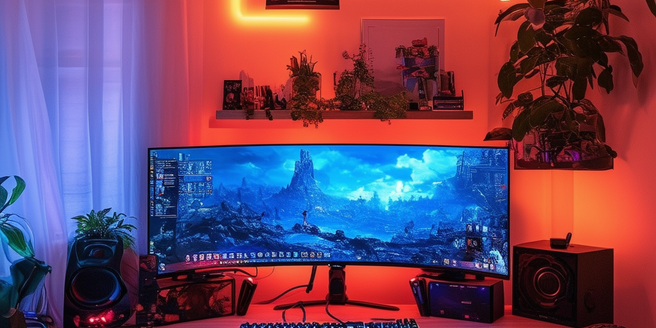The Psychology Behind Winning Online Games

Understanding Player Motivation and Engagement
Understanding the underlying motivations and engagement tactics of players can significantly impact gaming success. Players are driven by various factors, including achievement, social interaction, and immersion. Game developers who cater to these motivations by creating goals, fostering communities, and building immersive environments can enhance player satisfaction and retention. This requires a deep understanding of what drives player engagement in order to effectively meet their needs. In addition, regularly updating content based on player feedback helps to maintain a dynamic and engaging experience. By analyzing player behavior, designers can create experiences that keep players engaged and motivated to succeed.
Cognitive Skills Required for Strategic Gameplay
Strategic gameplay in online games demands a multitude of cognitive skills, such as problem-solving, critical thinking, and decision-making. Players must assess situations quickly and adapt their strategies to outperform opponents. The pressure to make quick decisions in fast-paced environments can significantly improve reaction times. Additionally, collaboration with teammates often enhances the strategic depth of gameplay. Enhancing cognitive flexibility through practice and study of game mechanics can lead to better in-game decisions and elevate overall performance. Regular practice helps players refine these skills. A deep understanding of game dynamics and a flexible mind are crucial components of strategic gameplay.
Emotional Resilience and Handling In-Game Losses
Emotional resilience is key to maintaining performance after in-game losses. Players often face defeat, but those who can cope with setbacks constructively tend to perform better in the long run. Techniques like positive self-talk, reflection, and learning from mistakes can build resilience. It’s crucial for players to understand that every setback is a learning opportunity. Additionally, having a strong support system can significantly enhance a player’s ability to bounce back. Developing these skills takes time and consistent effort. This emotional strength allows players to remain focused, motivated, and less likely to be discouraged by temporary lapses in success, fostering long-term growth.
The Impact of Social Interaction on Performance
Social interaction in online games can significantly affect player performance. Positive social environments, facilitated by teaming up with friends or joining supportive communities, can enhance motivation and enjoyment. Conversely, toxic interactions can lead to frustration and decreased performance. It is also important to recognize the role of game design in shaping these social dynamics. This dual impact highlights the importance of fostering positive behaviors in gaming communities. Game developers and community leaders play crucial roles in setting these standards. Encouraging teamwork, communication, and respect among players not only builds a healthier gaming community but also boosts individual and team performance.
The Role of Neurotransmitters in Competitive Gaming
Neurotransmitters like dopamine and serotonin play a critical role in competitive gaming. These chemicals influence mood, motivation, and focus, directly impacting a player’s ability to perform under pressure. High levels of dopamine, often triggered by rewards and achievements, can enhance focus and drive. However, imbalances can lead to anxiety or burnout. Therefore, players often need to employ strategies to keep their neurotransmitter levels in check. This might include practices like regular exercise, proper nutrition, and mindfulness techniques. Additionally, getting enough sleep is crucial for maintaining optimal neurotransmitter balance. Understanding and managing these neurotransmitter effects can help maintain peak performance.
Mindfulness Techniques to Enhance Focus and Precision
Mindfulness techniques can greatly enhance focus and precision in gaming, offering an array of benefits to players seeking to improve their performance. Practices such as deep breathing, meditation, and visualization help players stay present and clear-headed, enabling them to fully immerse themselves in the game. Meditation allows gamers to clear their minds of unnecessary distractions, fostering a state of inner peace and heightened awareness. Visualization techniques help players mentally rehearse and strategize, creating a clear mental picture of their desired outcomes.
Consistent practice enables players to develop patience and resilience, important traits for overcoming challenges and setbacks in gaming. By integrating mindfulness techniques into their routine, gamers can maintain peak performance and enjoy a more fulfilling gaming experience. Ultimately, the mindful approach not only enhances in-game abilities but also promotes overall mental well-being, making it a valuable practice for gamers at any level.